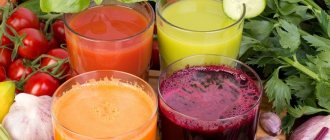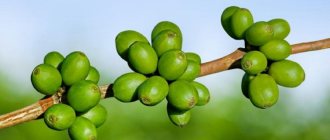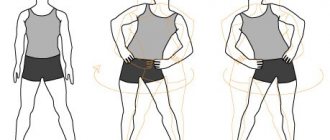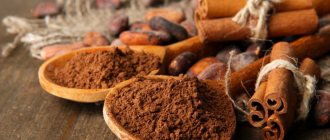Professional trainers and nutritionists say that drinking before going to the gym is mandatory. This is due to the fact that during exercise the athlete sweats a lot, and this threatens dehydration.
Lack of fluid in the body reduces muscle strength, accuracy and balance, and these are the main components of a quality workout.
The choice of drinks is large: water, isotonic drinks, tea, coffee, caffeine-based drinks, juices, sodas, etc. For classes to be effective, you need to choose the right liquid and know which drinks are best to avoid.
What drink is suitable for starting exercise in the gym?
Pre-workout drinks should be chosen depending on the results the athlete wants to achieve. The safest and healthiest liquids include water, green tea, and isotonic drinks (sports energy drinks with minerals and carbohydrates).
Carefully! Sports doctors remind that dehydration (water deficiency) should not be allowed during sports. This is fraught with a decrease in activity, a decrease in performance, in addition, there is a risk of overheating and heat stroke.
To maintain moisture balance in the body
To maintain health, you need to drink enough still water. This is an important condition for achieving comfort, increasing performance and physiological safety.
The longer the classes, the more fluid you need to drink.
Adherents of strength training can drink isotonics, which also normalize the water-salt balance. If an athlete exercises for more than 5-6 hours, then he needs a complex sports drink with electrolytes.
For fat burning and weight loss
Experts highlight the following cocktails that help speed up metabolic processes for burning fat:
- Detox cocktails are mainly vegetable juices that improve metabolism, cleanse the body of toxins, and normalize the functionality of the digestive organs.
- Thermogenic fat burners contain substances that accelerate blood flow and carbohydrate metabolism. Homemade cocktails contain vegetables, fruits, herbs, dairy products (low-fat), spices (cinnamon, cardamom, hot pepper, ginger, etc.). Pharmacy drinks contain guarana, caffeine, L-carnitine, taurine. Contraindications – diseases of the heart and blood vessels.
- Protein shakes are guaranteed to help achieve weight loss and also maintain muscle, provided they are used correctly.
You can prepare a working weight loss cocktail yourself, accelerating fat burning along with proper nutrition.
For energy
There are special substances that are used to increase energy before physical activity. Energy drinks or pre-workout complexes contain the following components: caffeine, guarana, arginine, amino acids, vitamins, creatine. The first 2 substances stimulate the nervous system, and the next pair increases muscle performance and endurance during exercise.
Pre-workout complexes are drunk before strength training 15 minutes before class. Some athletes combine energy drinks with BCAAs, L-carnitine, and vitamin and mineral supplements.
Carefully! Energy drinks should not be combined with other “pre-workout” drinks, fat burners or coffee. This can lead to heart problems and sleep disorders.
Be sure to check out:
Simple recommendations from famous trainers on what to eat before a workout to lose weight What to eat before a workout: recommendations from experts What is the best thing to eat after strength training and cardio to burn fat What and how long can you eat after a workout
Beneficial properties of the drink components
Now let's take a closer look at the ingredients that make up the energy drink. Why exactly these products make it so useful and valuable for the body.
Green tea is an amazing source of antioxidants
It contains a high concentration of polyphenols, which provide 25-100 times better antioxidant activity compared to vitamins C and E. Scientists have conducted many studies regarding the healing qualities of this wonderful drink, and here is what they found:
- Heart and vascular health. Regular consumption of green tea reduces the level of bad cholesterol and increases good cholesterol.
- Losing weight. The catechins in green tea help you lose weight by significantly increasing your metabolism and stimulating fat burning in the body.
- Cancer. A green tea drink can reduce the risk of developing cancer of the pancreas, breast, esophagus, ovaries, skin, stomach, and intestines.
- Diabetes. Green tea may have a positive effect on the symptoms of type 2 diabetes.
- Brain functions. A green tea drink improves mental abilities in an aging person. A study in mice found that tea's polyphenols helped suppress the formation of beta-amyloid plaques, the proteins linked to Alzheimer's disease.
Coconut oil provides energy
The medium chain fatty acids found in coconut oil provide a clean and healthy source of energy without adding weight. This happens because this type of fat is digested immediately and the liver converts it into energy.
But that's not all. These fatty acids also help improve the absorption of fat-soluble vitamins. In addition, scientists have discovered the positive effects of coconut oil on the human body.
- Boosting immunity. Various fatty acids and lipids present in coconut oil can improve the immune system. They have been found to help fight harmful microbes such as yeast, bacteria and viruses.
- Heart health. Just like green tea, coconut oil can reduce bad cholesterol and raise good cholesterol.
- Reduced feelings of hunger. Medium chain fatty acids help you feel full while reducing your overall calorie intake. You will notice that you eat much less.
Whey Protein Repairs Muscles
Whey is a high-quality protein obtained from cow's milk. This is a kind of by-product, the liquid remaining after making the curd mass. It is then turned into powder, packaged and sold.
The main benefit of whey is that it is quickly absorbed by the muscles, approximately 10-15 minutes after consumption. It also contains leucine, an amino acid that helps speed up muscle recovery, making this drink very popular among exercise enthusiasts.
If you regularly engage in fitness or bodybuilding, then the serum will only benefit you. But make sure you consume this product in moderation. Since excess protein can lead to the risk of cancer.
Can I drink drinks containing caffeine?
Drinks with caffeine are popular among athletes: natural coffee, decaf, strong tea, energy drinks, pre-workout complexes, cocoa, etc.
Many athletes are convinced that drinking this improves their performance during exercise. A negative reaction after consuming caffeinated drinks occurs due to individual intolerance, excessive consumption or diseases for which they are contraindicated.
For caffeine cocktails to bring only benefits, you need to take them no more than 3-4 times a week and in a minimal dosage.
When is it better to drink green tea - before or after training?
Drinking green tea about half an hour before your workout will give your body enough time to unlock its beneficial effects. In addition to helping you break down fat for energy, tea will also give you a hit of caffeine that will keep you energized for hours.
This drink is popular in part because it has relatively little caffeine, and for those who don't want to experience a crash after the stimulant wears off, green tea is a good choice. Another difference between natural tea and other caffeinated drinks is that it rarely causes feelings of anxiety or tension (as can happen after drinking strong coffee). If you find that caffeinated pick-me-ups make you "too active" or feel uncomfortable afterwards, then green tea is a great alternative.
It contains amino acids that have a positive effect on brain function. They help the body release dopamine and increase the neurotransmission of gamma-aminobutyric acid, which improves sleep and relieves nervous agitation. These amino acids help a person calm down and stabilize their mood. So, by drinking green tea before training, you will not only burn additional fat reserves, but also get a dose of caffeine, after which you will work in the gym even more effectively, and without nervous strain. By the way, combinations of additives are often used that contain both green tea and caffeine - they have a less “aggressive” effect.
Caffeine and sports
Caffeine is an alkaloid that activates the central nervous system. Sports research has proven that caffeine is recommended for athletes before strenuous exercise, such as long-term strength exercises, cycling, and running. Athletes who drank caffeinated drinks had increased endurance and improved muscle function compared to those who drank water.
The best source of caffeine is black or green tea. This substance is contained in energy drinks, but it is not recommended to consume them often, as the likelihood of stomach diseases increases.
Myths and truth
Caffeine is found in many drinks, so it's important to understand what it is. To do this, you can study several facts and myths about caffeine:
- It has a positive effect on memory – it’s true.
- It is a myth that espresso contains more caffeine than freshly brewed coffee. The content of this substance in a cup of coffee is about 225 mg, and in espresso it is about 70 mg.
- It increases performance – it’s true.
- Promotes dehydration - a myth. This substance has a diuretic effect, but removes only the volume of liquid that you consumed when pampering yourself with a cup of tea or coffee.
- Speeds up the reaction - true.
- The alkaloid is present only in coffee - a myth. As already mentioned, caffeine is found in tea, energy drinks, cocoa, various dishes, medications and confectionery products.
- It improves your mood – it really does.
- Caffeine helps overcome hangovers - a myth. This substance does not lower the level of alcohol in the blood, but only gives vigor.
- Increases blood pressure - true. For this reason, it is better for people with hypertension to avoid caffeine-containing drinks.
- Caffeine acts as a drug - a myth. This substance is addictive only in people who use it frequently and in large doses, and the negative symptoms soon disappear after withdrawal.
Based on this, with moderate caffeine consumption, the health threat is minimal.
Benefits and harms
| The beneficial properties of caffeine can be used in sports | Negative effects of caffeine |
|
|
To test your response to caffeine, drink a small dose of caffeine before exercising and then monitor how you feel. If negative reactions occur, avoid drinking anything containing this substance.
Dosage and rules of use
To experience the positive effects of caffeine, you need to follow these rules:
- The average dose of the alkaloid before intense exercise is from 150 to 500 mg.
- The maximum daily dose of the substance is 1000 mg, and a single dose is 400 mg.
Carefully! Excessive consumption of caffeinated drinks increases the likelihood of sleep disturbances, anxiety, headaches, nausea, breathing problems and heart rhythm problems. Sometimes convulsions occur, speech and thinking are impaired.
To avoid addiction, give up coffee for about a week every 14 days. Thus, the body will be cleansed of the stimulant, and the receptor cells will adequately perceive it.
You may also be interested in: Workouts after alcohol
What to eat before training
Composition of green tea
Green tea, compared to black tea, has a high content of strong antioxidant polyphenols . Namely, their most abundant group is flavonoids . There are different types of flavonoids, but green tea mainly contains high concentrations of catechins. They have a positive effect on almost every organ in the body. They protect the heart, nervous system, fight obesity, are anti-carcinogenic, anti-diabetic substances, and help the liver and blood vessels. All of the above positive effects are associated with drinking green tea or taking it in the form of green tea supplements . [2]
Green tea catechins are mainly [5] [2]:
- epigallocatechin-3-gallate (EGCG) – approximately 59% of total catechin content
- epigallate (EGC) – about 19%
- epicatechin-3-gallate ( E KG) – about 13%
- epicatechin (EC) – approximately 6.4%
Although all catechins have similar properties, EGCG is the most effective of them. [2] The exact content and ratio of catechins depends on how the tea is processed. The ratio of catechins in green and black tea is shown in the picture. Note the significantly higher ECGC content in green tea as opposed to black tea. [2]
Apart from the catechins mentioned, green tea is rich in nutrients. It contains caffeine, theanine, vitamins C, B2, E, beta-carotene, folic acid, saponins, gamma-aminobutyric acid GABA, minerals such as potassium, calcium, phosphorus, manganese and chlorophyll. [4] The amount of caffeine in green tea varies by manufacturer. However, it has less caffeine than coffee. One cup of green tea contains about 35-80 mg , and one cup of coffee contains from 100 to 400 mg of caffeine . The green tea dietary supplement contains approximately 50 mg of caffeine. However, green tea can act as a stimulant , so some people may find it energizing, more energizing, and may improve focus and mood. However, this is very individual. [6] If you are sensitive to caffeine , we recommend limiting your overall green tea consumption throughout the day. Too much caffeine can disrupt your sleep , so green tea is only recommended during the day.
Whether you drink green tea as a hot drink or take it in supplement form , the effects of green tea remain the same. But in this case, we don't mean its taste. Green tea is characterized by a pleasant sweet herbal taste . However, if it is left to steep longer than necessary , theanine is released, causing a bitter taste . However, this does not affect the properties of the tea. [1]
Is it possible to have coffee: how long before you should drink the drink
If there are no contraindications, the aromatic drink can be consumed. True, the athlete must comply with the dosage and regimen of its administration.
It is better to drink coffee half an hour before an intense workout. If you use the stimulant later, it simply will not have time to show its effect.
If you have heart disease, it is better to avoid coffee. Pathologies can be identified by the following symptoms: periodic heart pain, hypertension, rapid heartbeat.
The effect of the drink on the body
The components of coffee are quickly absorbed into the blood and affect many processes:
- Disturbs blood pressure. After 150 ml of drinking, the heartbeat slows down, and after 300 ml or more, it accelerates.
- Increases the secretion of hydrochloric acid. Coffee on an empty stomach threatens to irritate the mucous membranes, so it is better to drink it after a meal.
- Has a moderate diuretic effect.
- Invigorates, provokes the release of adrenaline.
This is interesting! Coffee promotes the production of the happiness hormone (dopamine). However, when its concentration increases excessively, sleep is disturbed, the person becomes restless and irritable.
Pros and cons
To understand whether you need to drink coffee or not, you need to weigh the pros and cons.
Pros of the aromatic drink:
- Increases endurance before exercise.
- Reduces post-workout pain.
- Improves reaction and attentiveness.
- Speeds up metabolism, promotes weight loss.
- Saturates the body with useful substances: potassium, magnesium, sodium, B vitamins, etc.
Cons of coffee:
- Provokes addiction if used frequently.
- Reduces blood flow to the heart.
- Slows down the absorption of fluid from the intestines, causing dehydration and digestive disorders.
If you have heart problems or are hypersensitive to caffeine, then avoid this drink in favor of strong tea.
Side effects of green tea
Green tea is generally safe for healthy adults when consumed in moderation. Green tea extract generally does not cause side effects even when taken orally to the skin.
However, if you exceed the recommended dose and drink too much green tea, you can expect side effects from caffeine, theanine, and catechins. We are talking about some of the following symptoms, such as [7]:
- headache
- nervousness
- sleep problems
- vomiting or heartburn
- cardiopalmus
The theanine in green tea increases the production of stomach acid, which can cause stomach pain, nausea, and constipation . [7]
Therefore, green tea should not be drunk by those who suffer from: [7] [1]:
- digestive problems
- iron deficiency or anemia
- anxiety and depression
- heart problems
Pregnant and breastfeeding women should also be careful and should drink a maximum of 1-2 cups of green tea per day. It has been proven that a pregnant woman’s body does not always accept caffeine, catechins and tannins well. Large amounts of green tea may cause miscarriage or the side effects mentioned above . During breastfeeding, caffeine may affect the baby's behavior through breast milk. For this reason, children are generally not recommended to drink green tea. [7]
Let's sip: can strong green tea cause harm?
Green tea has the following beneficial properties:
- Quickly quenches thirst.
- Tones and energizes.
- Promotes fat burning.
- Reduces the likelihood of developing cardiovascular diseases.
- Strengthens the immune system.
This is interesting! Athletes who regularly drink this drink recover muscles faster after training and accelerate their growth.
Athletes are recommended to drink 4-5 cups of green tea without sugar per day. However, it is better to drink liquid after meals. This is due to the fact that tea thins saliva and impairs digestion.
Getting Green Tea
Green tea has many beneficial effects due to its composition. The main effective component in green tea is catechins . They are obtained mainly from two sources:
- Camellia Sinensis tea leaves, which is used to make white, green, oolong and black tea,
- Chungtaejeon tea or Korean fermented tea, which contains less catechins but has a higher antioxidant effect [2].
Most often, the most affordable tea , however, comes from the leaves of Camelia Sinensis. [1] It is used to produce green and black tea . The difference between them lies in the processing method. And this:
- unfermented green tea , which is obtained by naturally drying and steaming fresh leaves to deactivate enzymes called polyphenols. This helps prevent oxidation and fermentation of some of the key ingredients in tea that have health effects.
- fermented black tea , goes through the entire fermentation phase before drying and steaming. This results in markedly increased oxidation and therefore a reduction in the final concentration of some of the major components. [2]
Is it possible to drink water
As mentioned earlier, water is considered the most suitable drink for an athlete. It prevents dehydration during exercise of any intensity.
Table mineral water without carbon is suitable for regular use. It perfectly quenches thirst and compensates for the lack of nutrients. You can and should drink it before classes and in the gym.
When and how to use
People who exercise regularly need to hydrate properly to avoid dehydration or excess fluid in the body.
You need to drink water 2-3 hours before training. Then drink the liquid 10-15 minutes before training to saturate the body with moisture.
What volume
3 hours before going to the gym you should drink 2 glasses of water. 15 minutes before exercise, the athlete drinks another 220 ml of liquid to ensure an adequate level of hydration. In summer and winter, the volume of water is increased - from 300 to 700 ml before training.
During drying, the daily volume of water is increased to 2-3 liters so that the body automatically gets rid of its excess. If an athlete drinks less, the liquid will be retained in the tissues, which can lead to swelling.
Rules for drinking the drink
Which pre-workout tea do you prefer? This wonderful drink may contain “invigorating” herbs – leuzea, ginseng, aralia and many others. They stimulate the body’s immune function, literally “charge” it with energy, and “accelerate” metabolism.
Green tea after a workout can be prepared with the addition of mint: for example, 1 tbsp. l. pre-crushed fresh or dry raw materials must be poured with a glass of boiling water, cover with a lid and leave for at least 10-15 minutes. When the mixture is ready, filter it, add a spoonful of sugar (or its substitute), and, if desired, lemon.
Ordinary tea made from green leaves is also suitable as an energy “regenerator”. It is combined with honey, ginger, lemon.
Athletes should drink green tea not only before or immediately after exercise. It is recommended to drink 4-5 glasses of the drink (without sugar) per day.
Previous
Proper nutritionNuts before and after training: benefits for the athlete
Next
Proper nutritionMilk before and after training: is it possible?
Other drinks
There are many more drinks that are popular among athletes. Although many of them are not recommended to drink before exercise:
- Sweet sodas and juices contain a lot of sugar, which changes the composition of the blood and makes you feel tired.
- Fresh fruits, berries, and vegetables are recommended to be diluted with water (1:2) before consumption to protect the mucous membranes of the digestive organs from irritation. Vegetable juices need to be lightly salted to saturate the body with sodium salts.
- Smoothies and fermented milk drinks (yogurt, kefir, fermented baked milk) should not be consumed before classes. This is due to the fact that they are quite high in calories and cause a feeling of overeating.
Supermarket energy drinks contain a lot of caffeine and other substances that give you energy. However, after a while the athlete will feel overwhelmed.
You may also be interested in: Detox cocktails for weight loss: recipes at home
Miracle drink
Green tea for an athlete is an excellent way to quench thirst, so many athletes drink it, including during training (both strength training and cardio).
This wonderful drink simultaneously performs several important functions for the body of an athlete:
- Tones, restores vigor, replenishes energy reserves;
- Helps launch the process of active fat burning;
- Green tea before training is a wonderful source of antioxidants (substances that slow down oxidation processes in the body, bind free radicals and prevent the development of cancer);
- The results of clinical studies prove the fact that athletes who regularly drink green tea after training get in shape faster, their muscles grow more actively, and their metabolism accelerates.
- This drink is a natural immunomodulator: it activates all the defenses of the human body and increases its resistance to viruses, infections, etc.
Clinically proven: daily consumption of green tea reduces the risk of developing vascular and heart pathologies by 75%.
This drink is a natural catalyst for “healthy” fat burning, so it is recommended to drink it not only for people who are struggling with extra pounds, but also for athletes who are “cutting.”
Experts say that 4 cups of this healing drink (approximately 600-800 ml) helps you get rid of 85 kcal, which corresponds to approximately 1 kg of “lost” fat per month.
Green tea has another unique property: it prevents the body from absorbing starch (this is a “fast” carbohydrate, which, when broken down, is transformed into energy, and then into fat).
Main conclusions
Based on the above, the safest drinks before going to the gym are:
- water;
- green tea;
- electrolyte solutions.
But subject to the rules of use and the absence of contraindications, athletes can drink drinks containing caffeine. They charge the body with energy, increase endurance, speed, attention, and promote weight loss. However, it is better to avoid caffeine-containing drinks on non-training days or before bed.
Green tea before and after workout
For the effective implementation of high-quality training progress, not only regular physical activity is important, but also diet and nutrition. Many athletes are interested in whether it is possible to drink green tea before and after training? Experts give a positive answer to this question: this wonderful drink helps not only replenish energy reserves in the body, but also “supplies” a lot of important vitamins, minerals, and microelements.











